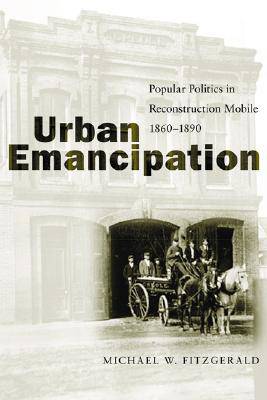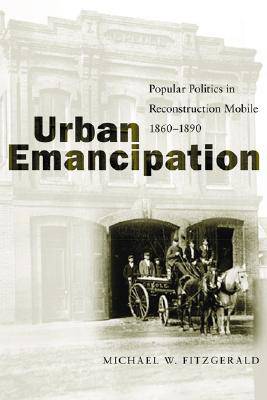
- Afhalen na 1 uur in een winkel met voorraad
- Gratis thuislevering in België vanaf € 30
- Ruim aanbod met 7 miljoen producten
- Afhalen na 1 uur in een winkel met voorraad
- Gratis thuislevering in België vanaf € 30
- Ruim aanbod met 7 miljoen producten
Zoeken
€ 53,45
+ 106 punten
Omschrijving
Scholars of Reconstruction have generally described Republican party factional conflicts in racial terms, as if the Radical agenda evoked unified black support. As Michael W. Fitzgerald shows in the first major study of black popular politics in the urban South in the years surrounding the Civil War, that depiction oversimplifies a contentious and often overlooked intraracial dynamic. Republican political power, he argues, heightened divisions within the African American community, divisions that were ultimately a major factor in the failure of Reconstruction.
Focusing on Mobile, the Confederacy's fourth largest city, Fitzgerald traces how the rivalry between longtime black residents and destitute freedmen fleeing the countryside yielded a startlingly antagonistic political scene. He demonstrates that the Republican factionalism that helped doom Reconstruction went beyond competing cliques of white officeholders. Boldly challenging reigning theories about the nature of post-Civil War politics, Urban Emancipation will spark historical debate for years to come.Specificaties
Betrokkenen
- Auteur(s):
- Uitgeverij:
Inhoud
- Aantal bladzijden:
- 320
- Taal:
- Engels
- Reeks:
Eigenschappen
- Productcode (EAN):
- 9780807128374
- Verschijningsdatum:
- 1/09/2002
- Uitvoering:
- Paperback
- Formaat:
- Trade paperback (VS)
- Afmetingen:
- 155 mm x 233 mm
- Gewicht:
- 485 g

Alleen bij Standaard Boekhandel
+ 106 punten op je klantenkaart van Standaard Boekhandel
Beoordelingen
We publiceren alleen reviews die voldoen aan de voorwaarden voor reviews. Bekijk onze voorwaarden voor reviews.











